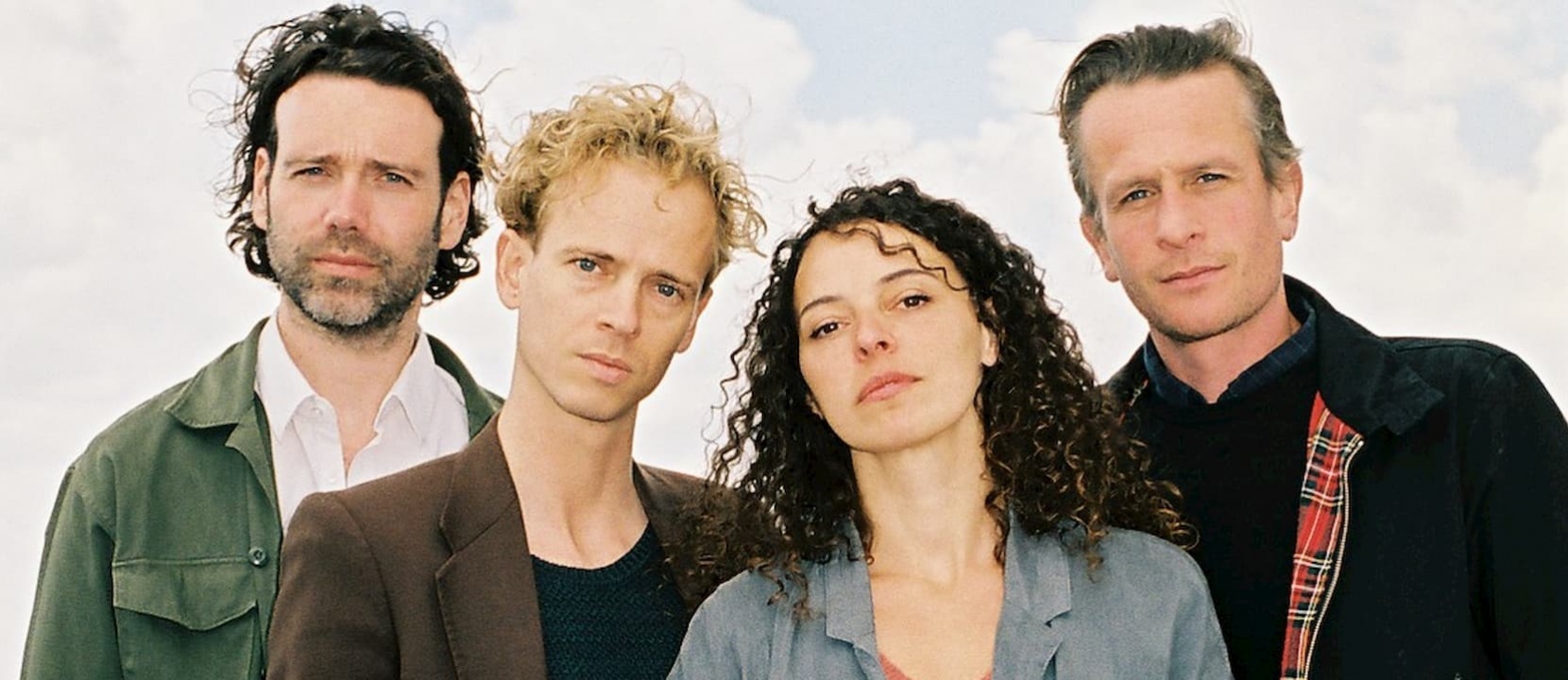For the realization of that impossible project, FC Bergman succeeded in getting the entire team of the Bourla Theatre on board. The production was a good reason for Toneelhuis and FC Bergman to start discussions about a more structural collaboration. In January 2013, the six FC Bergman creators officially came under the wing of Toneelhuis. After a number of sensational shows made on location, FC Bergman (then still including their colleagues Bart Hollanders and Matteo Simoni) thought it was time to play in the theatre – as a location, that is. The result was the impressive Van den Vos (2013), in which the main floor of the Bourla was transformed into a swimming pool. Almost ten years later, with The Sheep Song, Bergman made its first 'regular’ theatre production.
The connecting thread in your work has always been the tragedy of the small, struggling person who has to hold their own against forces beyond their control: fate, the natural elements, large economic systems. Has anything changed in that point of departure in the past ten years?
Marie Vinck: "I don’t think so. We still make shows about people seeking their place within a larger framework, but our thinking about that has deepened. It’s become more mature.”
Stef Aerts: "There used to be a touch of zealotry in us. But now we have moved beyond romanticising the suffering person. We’ve been around a bit longer and seen more of the world, and that confronts you with the fact that suffering is seldom romantic.”
Thomas Verstraeten: "Whichever way you look at it, having children yourself makes you keep both feet on the ground. You can no longer afford to be fatalistic, to turn your back on the future.”
You’ve grown older, but the world has also fundamentally changed. To what extent do the social discourses on climate, gender, racism and so forth play a role in the shows you have made and will be making?
Aerts: "We are not the kind of artists who deal with that in an activist manner. I myself feel a great reluctance to provide answers in a direct, unambiguous way. Our poetics is intuitive, indirect.”
Verstraeten: "However, making The Sheep Song confronted us with a lot of questions that we had never asked ourselves before. There are images in the show that refer to George Floyd, but not in an unequivocal or pamphleteering way. I would above all hope that we are sensitive, open people who include topical issues in our work without having to be explicit about them."
You have made a name for yourselves as the collective that makes wild, grandiose location theatre. How has your relationship with the location evolved?
Joé Agemans: "At first, the location was the actual surroundings in which we played, and the place played an active part in the show, as in the Terminator Trilogie [in the port of Antwerp]. But then we increasingly began to take our locations indoors. Like with The Land of Nod and JR – those were actually huge sets that were rebuilt in a shed."
Verstraeten: "We once described the role of scenography as 'the beast to be tamed'. Our shows often start with a single stage image: the treadmill in The Sheep Song, the tower in JR.... Large installations, to which we then have to relate. The Sheep Song served as a cut-off point: for the first time, we used the hall as it is meant to be used instead of remodelling that black box.”
Aerts: "I see another evolution, Thomas. We also have focussed more and more on repertoire. JR was a radical adaptation of a book, Les pêcheurs de perles was a repertoire opera, and in recent years we have worked twice with ITA [Internationaal Theater Amsterdam]. The idea of FC Bergman being location tinkerers and set builders has not been true for a long time. We have to be honest: we don't pick up a hammer anymore; that would lead to accidents. (laughs)
After ten years with Toneelhuis, you have chosen to continue the collaboration.
Aerts: "The scale of our work requires an organization of a certain magnitude, of course. There are only a few houses in Flanders that can offer such support, that have such an enormous set building workshop for example."
Vinck: "But it's not just the practical aspects, or the fact that we necessarily want to build megalomaniac sets. If that were our ambition, we would have been better off moving abroad. It’s especially because we have a bond of trust with this house, and you don’t realize how important that is until you happen to work somewhere else. We never have to justify our choice of subjects or partnerships to Toneelhuis."
Agemans: "Nor should you underestimate the role of the audience. Antwerp is our home base, with a loyal audience of both older and younger people. A critical audience, too. A lot of people have been following us throughout our entire career, and aren’t afraid to judge us accordingly."
interview by Evelyne Coussens








